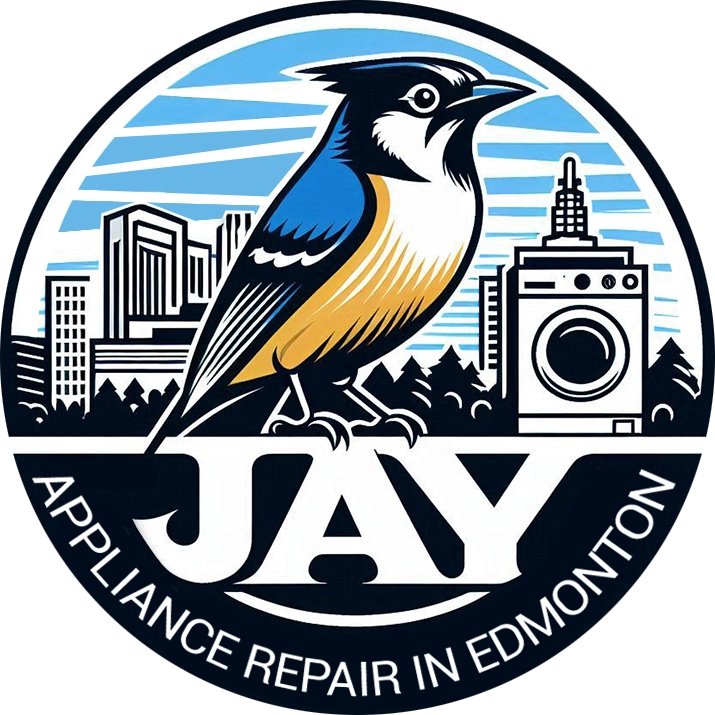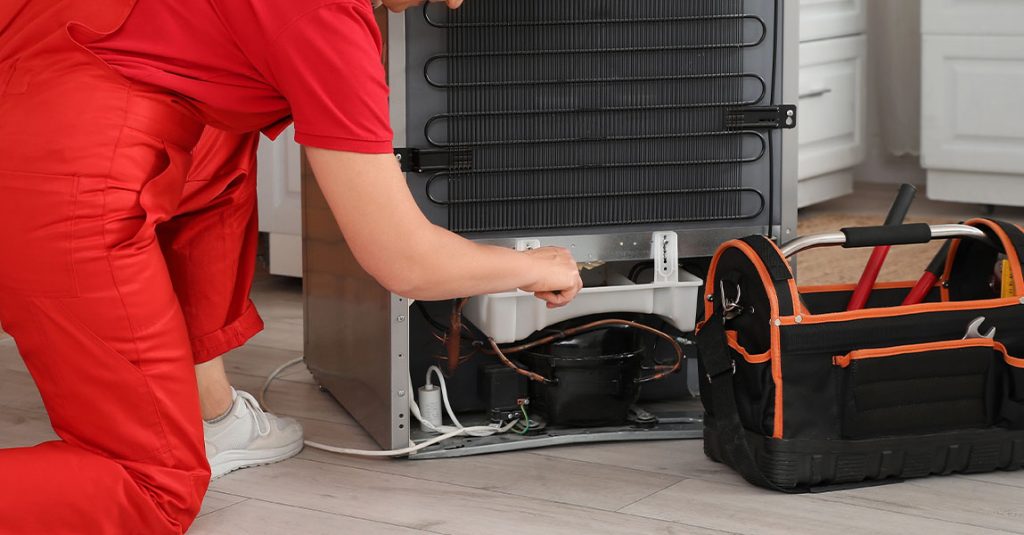When our fridge makes a clicking sound and stops cooling, it can feel stressful. Food spoils quickly, and we are left wondering what caused the problem. We can often narrow down the issue by checking a few common parts before deciding if professional help is needed.
Power Supply and Outlet Check
First, we should confirm that the fridge has a steady power supply. A loose plug or faulty outlet may cause the compressor to click but not run. We can test the outlet with another appliance to be certain it works. If the outlet is fine, we should also check the power cord for damage.
Sometimes, a tripped breaker or blown fuse is the real cause. In other words, before assuming a major fault, it is worth inspecting the basics. This quick step can save unnecessary work and help us confirm if the fridge is getting consistent power.
Compressor Start Relay
Another common source of clicking is the start relay. This small device helps the compressor begin running. If it fails, the compressor may attempt to start, click, and then shut down. We can often smell a burnt odor near the relay when it has failed.
Replacing a start relay is usually straightforward. However, if the new relay does not fix the clicking, the compressor itself may be damaged. At this point, we might want to look into professional fridge repair in Vancouver to avoid replacing the wrong part.
Condenser Coils and Airflow
Dusty or clogged condenser coils cause the compressor to overheat and shut down. When this happens, the fridge may make clicking noises as it tries to restart. Pulling the fridge away from the wall and cleaning the coils can often solve this issue.
It is also important to check the back and sides of the unit for blocked airflow. If warm air cannot escape, the compressor works harder and overheats. Cleaning the coils every six months can prevent repeated clicking and cooling issues.
Evaporator Fan Motor
Inside the freezer, the evaporator fan circulates cold air. If this motor fails, the fridge may not cool even though the compressor runs. Sometimes the fan blades are blocked by ice or debris, which causes clicking or rattling sounds.
We can inspect the fan area for frost buildup and gently clear any obstructions. If the motor itself has failed, it will need replacement. This is a repair that often requires care since the fan connects directly to the cooling system.
Thermostat and Temperature Control
Faulty thermostats can mislead the compressor into shutting off too early or not running at all. When this happens, we may still hear clicks but no cooling takes place. We can test by turning the thermostat dial to the coldest setting to see if the compressor engages.
If there is no change, the control may be faulty. Although thermostats are not as common a cause as relays or coils, they are worth checking before moving on to more costly parts. Inconsistent cooling is often linked to poor temperature control.
Overload Protector
The overload protector keeps the compressor from overheating. If it fails, the compressor may click repeatedly without starting. This small device is located near the start relay. Testing it with a multimeter can show whether it still has continuity.
Replacing the protector is relatively inexpensive. Yet, if it continues to trip even after replacement, the compressor itself may be drawing too much current. At that point, the issue may go beyond simple part replacement.
Signs of Compressor Failure
If we have checked the relay, protector, coils, and fan, and the clicking continues, the compressor may be failing. A weak compressor struggles to start and often makes repeated clicking noises. Unfortunately, compressor replacement is one of the most expensive repairs.
We can listen closely: if the clicking is followed by a brief hum before stopping, the compressor is trying to run but cannot. In this case, appliance repair services Vancouver may be needed to confirm whether replacement is worth the cost.
When to Call a Professional
Even if we are comfortable with basic checks, some repairs require technical skills and tools. Handling refrigerant, testing sealed parts, or replacing a compressor should not be done without training. Our team can usually handle cleaning and inspecting, but deeper repairs are better left to professionals.
If our fridge is still clicking and not cooling after we have tried these steps, the best choice is to contact us for help. It saves time, prevents further damage, and ensures the fridge is fixed safely.
FAQ
Why does my fridge click every few minutes?
It usually means the compressor is trying to start but cannot. The issue may be with the relay, overload protector, or the compressor itself.
Can dirty condenser coils stop a fridge from cooling?
Yes, coils covered in dust make the compressor overheat and shut down. Cleaning them can restore proper cooling and prevent repeated clicking.
How do I know if the start relay is bad?
If the fridge clicks but the compressor does not run and you notice a burnt smell near the relay, it may have failed. Testing with a multimeter can confirm.
Is it safe to keep using the fridge if it clicks?
It is not recommended. Continued clicking without cooling can damage the compressor further and risk food spoilage.
Should I repair or replace a fridge with a bad compressor?
That depends on the age and condition of the fridge. Compressors are expensive to replace, so if the unit is older, replacement may be more cost effective.

